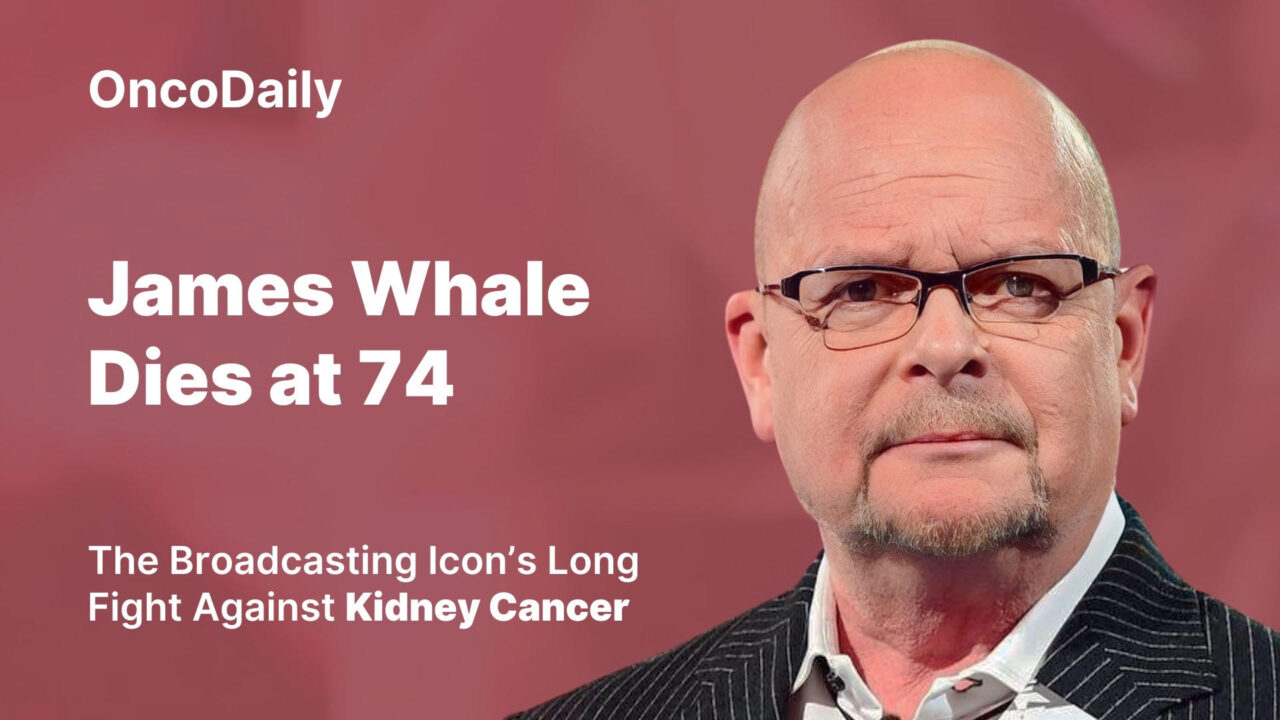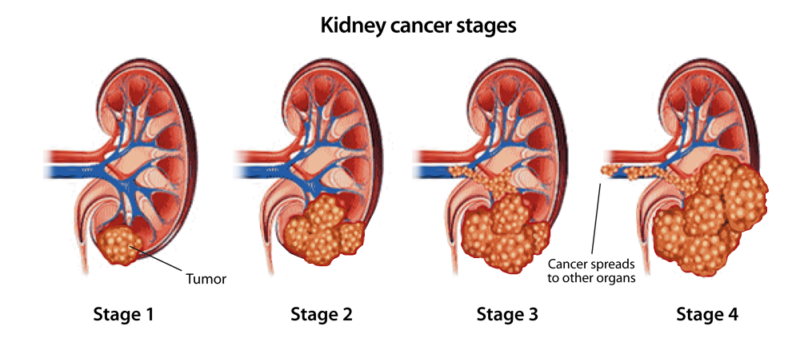
James Whale Dies at 74: The Radio Icon’s Long Fight Against Kidney Cancer
James Whale, the renowned radio and TV personality, has died at the age of 74 after a long battle with kidney cancer. Whale was first diagnosed in 2000, underwent kidney removal surgery, and in 2020 revealed that the cancer had spread to his remaining kidney, spine, brain, and lungs. Despite his illness, he remained dedicated to broadcasting and cancer charity work, founding Kidney Cancer UK in 2006 to raise awareness and funds. Whale’s career spanned over five decades, during which he pioneered late-night shock-jock radio phone-ins and hosted The James Whale Radio Show on ITV, becoming a cultural icon. He was widely respected for his outspoken style and his significant contributions to British broadcasting.
His final podcast was recorded just days before his passing, as he thanked his fans for their support. Whale was awarded an MBE in 2024 for his services to broadcasting and charity. Colleagues describe him as a companion, provocateur, and broadcasting legend who will be greatly missed.
What Were the Early Life and Career Beginnings of James Whale?
James Whale was born Michael James Whale on May 13, 1951, in Ewell, Surrey, England. He came from a middle-class family; his English father, David, ran a family clothing business, and his Welsh mother, Anne, was a professional ballet dancer. His parents later owned a pub in Ewell, and Whale moved to King’s Cross, London, where they also ran a pub. He attended school in Epsom and was a Surrey junior archery champion as a teenager.
Whale’s early media career began in 1970 when he became one of the launch DJs for Radio Topshop, the in-store station of the Topshop fashion chain. By 1974, he was hosting an evening talk radio show at Metro Radio in northeast England and was the first presenter of the successful Nightowls program. He later worked at BBC Radio Derby, hosting a morning phone-in show in the early 1980s before rising to national prominence with his late-night talk show on Radio Aire in Leeds, which would later be simulcast on ITV.
How Did James Whale Rise to Fame in British Broadcasting?
James Whale rose to fame in the 1980s through The James Whale Radio Show, which originated on Radio Aire in Leeds. The show gained popularity for its late-night phone-ins and controversial, outspoken style. In 1988, it was simulcast on Yorkshire Television, reaching a wider audience, and by April 1989, it aired nationally on ITV.
The show became known for its chaotic, lively atmosphere, witty banter, and boundary-pushing content. Whale often engaged directly with listeners—sometimes cutting off callers abruptly—and featured a mix of celebrity interviews and commentary. His bold, confrontational style earned both praise and criticism, but it also attracted millions of viewers, making him a household name. Whale was recognized as a pioneer for blending shock-jock radio with televised talk formats, a style that had not been widely seen in British media before.
What Were the Career Highlights and Contributions of James Whale?
James Whale’s career spanned more than five decades and included major roles across both radio and television. From 1995 to 2008, Whale hosted a nighttime show on TalkSport (originally Talk Radio), where his 10 pm to 1 am slot became iconic. He later moved to LBC 97.3, where he hosted the drivetime show from 4 pm to 7 pm and delivered the station’s highest ratings during his tenure. Whale also presented the breakfast show on BBC Essex (2013–2016) and made appearances on other BBC local stations including BBC Radio Berkshire, BBC Three Counties Radio, and BBC Radio Kent.
Starting in 2016, he hosted evening shows on talkRADIO, and later transitioned to TalkTV with his program James Whale Unleashed. On television, Whale hosted Whale On, Dial Midnight, Central Weekend Live for ITV, and Talk About for BBC One. Whale is widely recognized as one of Britain’s first “shock jocks”, known for witty, brash commentary and interactive listener segments that redefined late-night radio formats in the UK.
When Was James Whale First Diagnosed With Kidney Cancer?
In February 2000, James Whale noticed blood in his urine and was soon diagnosed with kidney cancer. He had a large tumor on his left kidney and was given a 50% chance of survival. He underwent surgery to remove the kidney but opted out of chemotherapy.
What Was James Whale’s Role in Cancer Advocacy?
Following his recovery, Whale was determined to improve awareness. In 2006, he founded the James Whale Fund for Kidney Cancer, which later became part of Kidney Cancer UK. Through this initiative, he helped raise hundreds of thousands of pounds for research and patient support.
How Did James Whale Handle the Recurrence of His Cancer?
In 2020, James Whale publicly revealed that his cancer had returned and had spread to his remaining kidney, spine, brain, and lungs. Despite a terminal prognosis, he continued to work and used his platform to raise awareness and speak candidly about the challenges of living with advanced cancer.
He remained active on air, inspiring many with his humor, honesty, and resilience, even as the illness progressed. He discussed the emotional and physical toll of his condition openly, often using his signature wit to lighten the gravity of his situation.
What Were the Final Years and Legacy of James Whale?
James Whale was awarded an MBE in 2024 for his services to broadcasting and cancer charity work. He continued broadcasting until his final days, recording his last podcast from a hospice just days before his death in August 2025.
In this emotional final message, Whale thanked his fans for their loyalty and support throughout his career. His bold voice, unapologetic personality, and deep connection with listeners left an indelible mark on British broadcasting.
Colleagues and fans have described Whale as a companion, provocateur, and a legend of late-night radio, whose fearless style redefined the genre.
What Do We Know About James Whale’s Personal Life?
James Whale faced personal tragedies alongside his public health battle. His first wife, Melinda, died of lung cancer in 2018, a deeply personal loss that Whale discussed openly. He later remarried and is survived by his second wife, Nadine, and his two sons, James and Peter.
Throughout his life and career, James Whale was remembered as someone who combined boldness with warmth, controversy with compassion, and entertainment with honesty—a broadcaster unlike any other.
You Can Also Read Dolph Lundgren’s Fight for Life: How He Survived Kidney Cancer After 9 Years of Battle by Oncodaily.

What Causes Kidney Cancer?
According to leading oncology organizations such as the National Comprehensive Cancer Network (NCCN) and the American Society of Clinical Oncology (ASCO), kidney cancer risk is influenced by a combination of genetic, environmental, and lifestyle factors. Established causes include tobacco smoking, which increases carcinogen exposure in the kidneys; obesity, which may alter hormone levels and promote tumor growth; and hypertension, which independently correlates with higher kidney cancer incidence. Family history and certain inherited genetic syndromes also contribute to risk, though these are less common. Additionally, chronic kidney disease and long-term dialysis increase vulnerability to renal malignancies.

Environmental exposures to industrial chemicals like cadmium and trichloroethylene have been implicated but require further study. Men are about twice as likely as women to develop kidney cancer, and incidence generally rises with age. Notably, although obesity, smoking, and hypertension are the strongest modifiable risk factors, the exact biological mechanisms remain partially understood, prompting ongoing research into gene-environment interactions and tumor biology to better define causation. These factors combined shape the epidemiological profile that guides screening, prevention, and clinical management of kidney cancer in contemporary oncology practice.
How to Prevent Kidney Cancer?
According to guidelines and expert consensus from leading bodies like the National Comprehensive Cancer Network (NCCN) and American Society of Clinical Oncology (ASCO), specific preventive measures can help reduce the risk of developing kidney cancer, though primary prevention focuses largely on controlling modifiable risk factors.
Key prevention approaches include:
- Avoiding tobacco smoking: Smoking is the strongest established risk factor for kidney cancer. Quitting or never starting smoking significantly lowers risk.
- Maintaining a healthy body weight: Obesity is strongly linked to kidney cancer risk through metabolic and hormonal mechanisms. Weight management through diet, exercise, and lifestyle reduces this risk.
- Controlling high blood pressure: Hypertension independently increases kidney cancer risk; managing blood pressure through medication and lifestyle changes is recommended.
- Limiting exposure to certain industrial chemicals: Reducing contact with cadmium, trichloroethylene, and other carcinogens known to affect kidney tissue, especially in occupational settings, is advised.
- Managing chronic kidney disease (CKD): Patients with CKD or those on long-term dialysis are at elevated risk; close monitoring and kidney health maintenance may mitigate risk.
While there are no routine screening guidelines for kidney cancer in the general population, NCCN encourages being vigilant in individuals with family history or hereditary cancer syndromes. Imaging and genetic counseling may be warranted in those with high-risk profiles.
Ultimately, prevention centers on addressing lifestyle factors—especially smoking cessation, weight control, and blood pressure management—and minimizing toxic exposures, aligning with NCCN and ASCO clinical practice insights. Sources include NCCN Kidney Cancer Guidelines (version 2024) and ASCO educational materials, reflecting consensus best practices in risk reduction.
Written by Aharon Tsaturyan, MD
FAQ
What are the main symptoms of kidney cancer?
Common symptoms include blood in the urine (hematuria), a lump or mass in the kidney area, flank or side pain, unexplained weight loss, fatigue, and general malaise. Early-stage kidney cancer often has no symptoms.
How is kidney cancer diagnosed and staged?
Diagnosis involves imaging tests like CT scans, MRIs, ultrasound, and sometimes biopsy. Staging determines the extent of the cancer (tumor size, lymph node involvement, metastases) and guides treatment.
What causes kidney cancer and what are the risk factors?
Causes include smoking, obesity, hypertension, family history, certain inherited syndromes (e.g., Von Hippel-Lindau), chronic kidney disease, and exposure to harmful chemicals like cadmium and trichloroethylene.
What treatment options are available for kidney cancer?
Treatments include surgery (partial or radical nephrectomy), ablation therapies (cryoablation, radiofrequency), targeted drug therapy, immunotherapy, radiation (mostly symptom relief), and less commonly chemotherapy.
Can kidney cancer be cured?
If detected early and localized, kidney cancer is often curable with surgery. Advanced or metastatic disease can be managed with systemic therapies but is less likely to be cured.
How fast does kidney cancer spread?
Growth rate varies by tumor grade; high-grade tumors are aggressive and spread faster, while low-grade tumors may grow slowly. Some small tumors may be monitored over time if indolent.
Is kidney cancer hereditary?
Most kidney cancers are sporadic, but about 5% are linked to inherited genetic conditions like Von Hippel-Lindau syndrome, hereditary papillary renal carcinoma, or Birt-Hogg-Dubé syndrome.
How can I reduce my risk of kidney cancer?
Avoid smoking, maintain healthy weight, manage blood pressure, minimize exposure to harmful chemicals, and care for kidney health. No guaranteed prevention exists but risk reduction is possible.
When was James Whale diagnosed with kidney cancer?
James Whale was first diagnosed with kidney cancer in 2000. After surviving the initial diagnosis, he became an advocate for kidney cancer awareness and founded the James Whale Fund for Kidney Cancer.
What treatments did James Whale undergo for kidney cancer?
While specific medical treatment details have not been extensively publicized, it is known that Whale underwent treatment that allowed him to live many years after diagnosis, reflecting likely multi-modal care including surgery and systemic therapies typical for kidney cancer. He remained open about his journey with the disease and actively raised awareness and funds for research.
How long did James Whale live after his diagnosis?
James Whale lived approximately 25 years after his initial kidney cancer diagnosis in 2000, passing away at age 74 in 2025. His long survival was notable for kidney cancer and he remained active in media and charity work throughout this time.
-
Challenging the Status Quo in Colorectal Cancer 2024
December 6-8, 2024
-
ESMO 2024 Congress
September 13-17, 2024
-
ASCO Annual Meeting
May 30 - June 4, 2024
-
Yvonne Award 2024
May 31, 2024
-
OncoThon 2024, Online
Feb. 15, 2024
-
Global Summit on War & Cancer 2023, Online
Dec. 14-16, 2023
